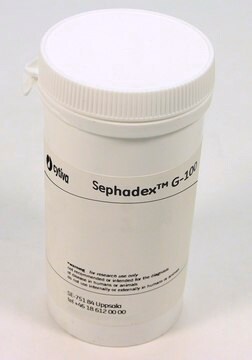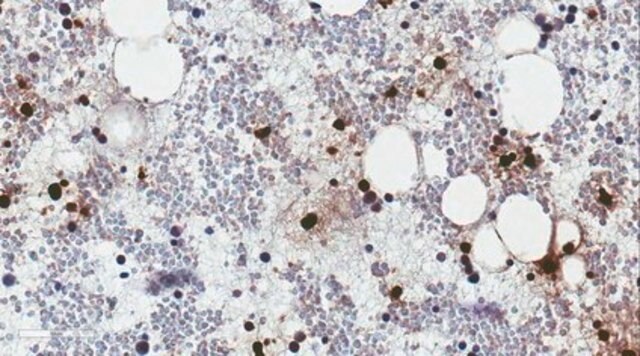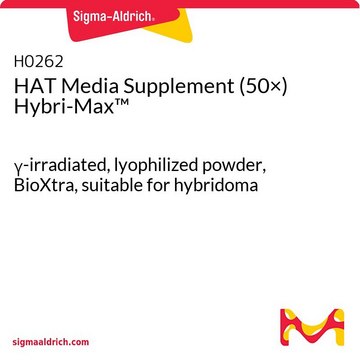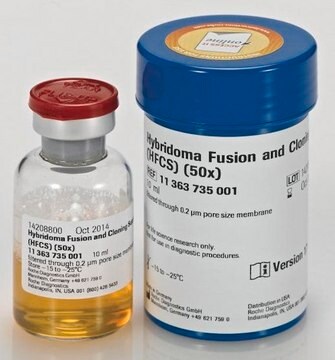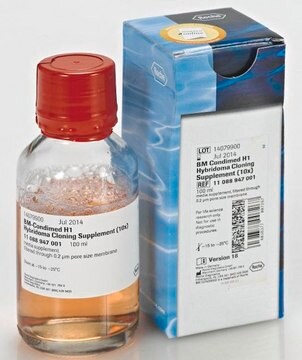MABN696
Anti-G6PD Antibody, clone 2H7
ascites fluid, clone 2H7, from mouse
Sinónimos:
Glucose-6-phosphate dehydrogenase, G6PD
About This Item
Productos recomendados
biological source
mouse
Quality Level
antibody form
ascites fluid
antibody product type
primary antibodies
clone
2H7, monoclonal
species reactivity
human
technique(s)
flow cytometry: suitable
immunohistochemistry: suitable
western blot: suitable
isotype
IgG1
UniProt accession no.
shipped in
wet ice
target post-translational modification
unmodified
Gene Information
human ... G6PD(2539)
General description
Immunogen
Application
ELISA (Direct) Analysis: A 1:10,000 dilution from a representative lot detected G6PD with recombinant G6PD protein antigen.
Flow Cytometry Analysis: A 1:200-400 dilution from a representative lot detected G6PD in non serum starved Jurkat cells.
Optimal working dilutions must be determined by end user.
Neuroscience
Developmental Neuroscience
Quality
Western Blotting Analysis: A 1:500-2,000 dilution of this antibody detected G6PD in HeLa, MCF-7, Jurkat and K562 cell lysates.
Target description
Linkage
Physical form
Storage and Stability
Handling Recommendations: Upon receipt and prior to removing the cap, centrifuge the vial and gently mix the solution. Aliquot into microcentrifuge tubes and store at -20°C. Avoid repeated freeze/thaw cycles, which may damage IgG and affect product performance.
Analysis Note
HeLa, MCF-7, Jurkat and K562 cell lysates
Disclaimer
¿No encuentra el producto adecuado?
Pruebe nuestro Herramienta de selección de productos.
Storage Class
12 - Non Combustible Liquids
wgk_germany
nwg
flash_point_f
Not applicable
flash_point_c
Not applicable
Certificados de análisis (COA)
Busque Certificados de análisis (COA) introduciendo el número de lote del producto. Los números de lote se encuentran en la etiqueta del producto después de las palabras «Lot» o «Batch»
¿Ya tiene este producto?
Encuentre la documentación para los productos que ha comprado recientemente en la Biblioteca de documentos.
Nuestro equipo de científicos tiene experiencia en todas las áreas de investigación: Ciencias de la vida, Ciencia de los materiales, Síntesis química, Cromatografía, Analítica y muchas otras.
Póngase en contacto con el Servicio técnico

